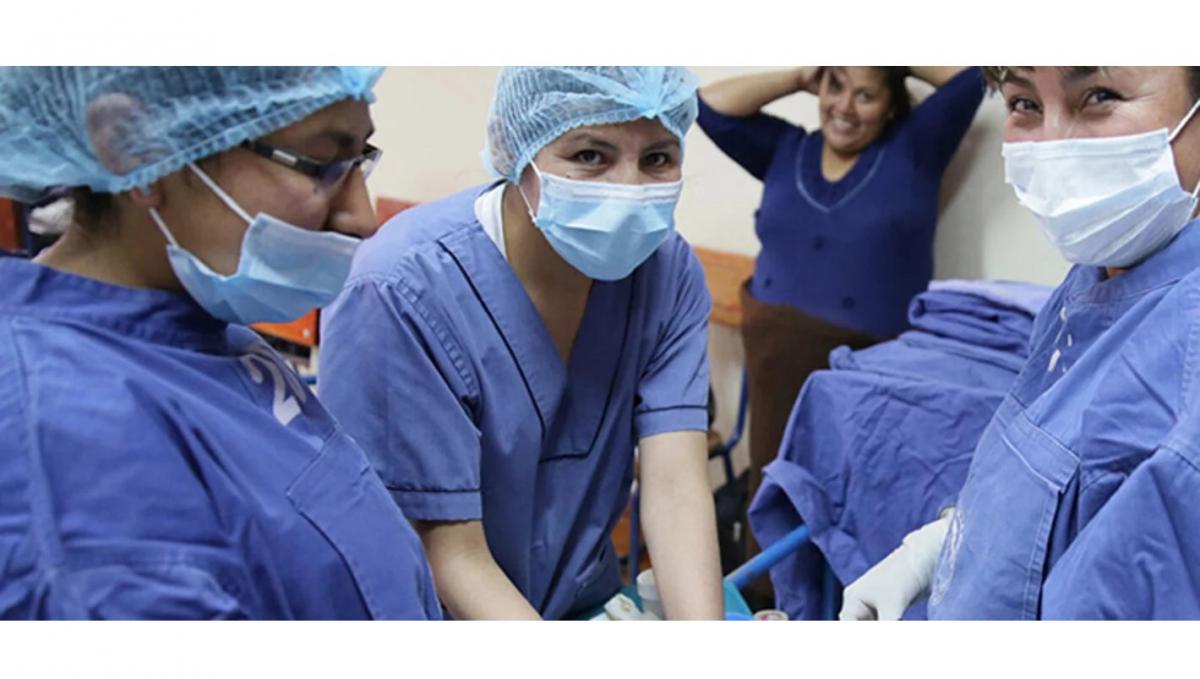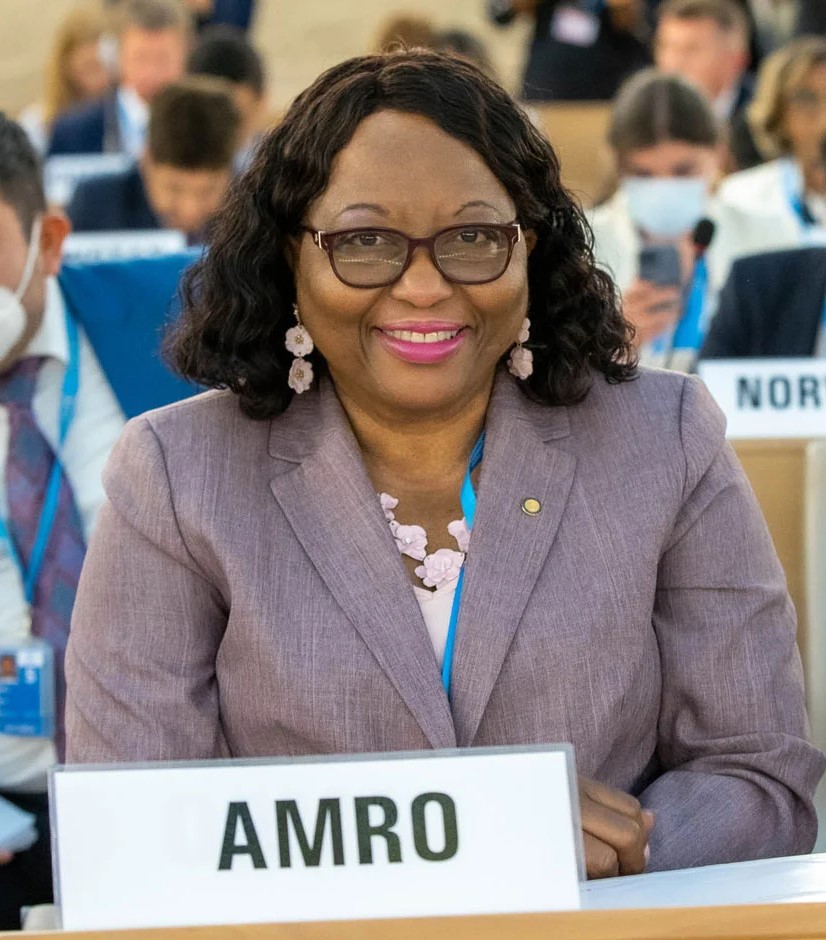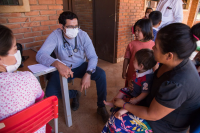The Americas has a shortfall of 600,000 health professionals, affecting access to health in rural and underserved areas

The Director of the Pan American Health Organization (PAHO), Carissa F. Etienne, said today that the deficit in the health workforce in the Americas reaches 600,000 professionals, something that affects access to care, especially for those in rural and underserved areas of the region.
During the deliberations of the 2022-2030 Action Plan "Working for Health" at the 75th World Health Assembly, Etienne acknowledged "the enormous sacrifice and contribution of health workers in the Americas" during the COVID-19 pandemic.
"The unwavering resilience of our health workers is a testimony to their commitment to serve, save lives and ensure health for all," she said.

Dr. Carissa F. Etienne at the 75th World Health Assembly
The PAHO Director noted that during the peaks of the pandemic, "task shifting and task sharing saved lives," and that "patient care delivery was facilitated by digital transformation."
In that regard, she commented that PAHO, through its Virtual Campus for Public Health, trained more than 900,000 health workers in the control and management of COVID-19, health services continuity, and vaccine deployment during the pandemic.
However, Etienne said, "we can no longer ignore long-standing deficiencies in health systems," which impact the capacity of the health workforce to provide quality, uninterrupted care.
Among the deficiencies, Etienne cited the migration of health workers to urban centers or wealthier countries - exacerbating the gap-; lack of planning between the Education and Labor sectors; and insufficient emphasis on interprofessional and ongoing education.
Among the effects of COVID-19, a WHO study estimated that around 115,000 health workers died between January 2020 and May 2021 worldwide.
"Investing in health systems and a fit-for-purpose health workforce constitutes a priority for the Americas," she remarked, adding that PAHO looks forward to working with Member States, partners and WHO in developing "a transformative agenda in human resources for health in the Americas."



